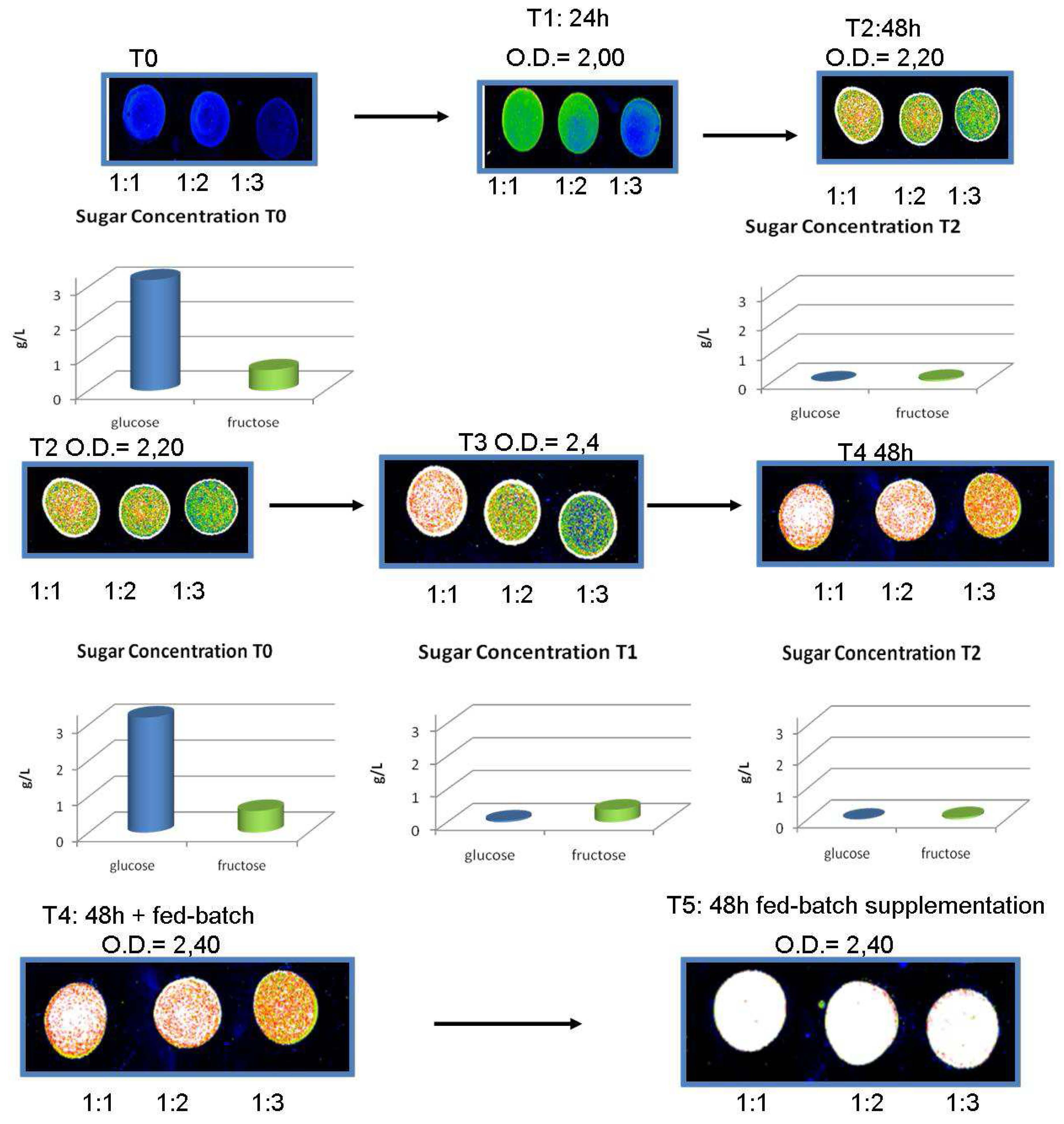Polyhydroxyalcanoates (PHAs) are biodegradable polymers synthesized in cytoplasmic granules in bacteria, such as Cupriavidus necator (Ralstonia eutropha), Alcaligenes latus, Pseudomonas spp., Comamonas spp. and other species. PHAs accumulation occurs in response to stress conditions, i.e. under high carbon and low nitrogen (24:1 ratio). PHA can be synthesized using recombinant microorganisms (provided with the operon phbA/phbB/phbC), escaping the constrains of nutrient request, except addition of high amount of sugar (glucose, lactose, fructose). In this study; E. coli was genetically modified for PHB production in biofermentors. The production of PHA at industrial scale requires a continuous supplementation of fermentable sugars to support the availability of nutrients and to assess the level of the exponential growth phase; since sugars are required either for bacterial growth either for PHA synthesis and energy storage. The biofermentors need to be run in automated system. Sensors are used at many points in fermentators; in the evaluation of parameters: consumption of sugars; cell density; quantification of PHB synthesis. The need of operational control during the fermentation has prompted us to application of three measurements; one unit linked to a Nanodrop to evaluate OD; one linked to a reaction chamber to measure sugars consumed by enzyme based fluorescence detection; and one for bacteria Nile Blue staining and fluorescence intensity reads. The growth of bacteria on three different plant by-products was monitored and PHB production in four days using a banana by-product feed was optimised. These detectors will make possible to exploit the full potential of bioreactors optimizing the time of use and maximizing the number of bacteria synthesizing PHA.

